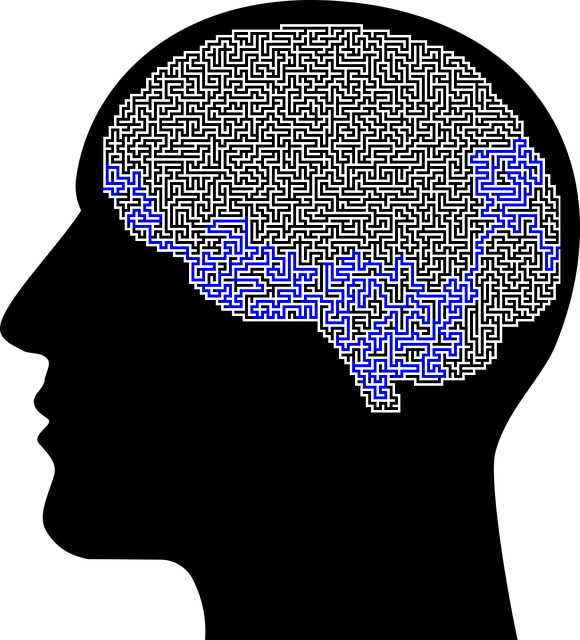Castle Rock Child Abuse Therapy offers a holistic approach to healing from trauma, addressing its multifaceted impacts on children and young adults. Combining individual therapy, group support, community outreach, and mental wellness coaching, they empower clients to overcome abuse's effects. Specialised therapists use evidence-based techniques and cultural competency to create safe spaces, facilitating emotional healing through tailored treatment plans. The program extends its reach with initiatives like the Mental Wellness Podcast Series and focuses on long-term care through continuous support and community engagement to prevent burnout and promote sustained well-being.
Trauma support services are vital for healing and recovery, especially for children who have experienced abuse. This article explores a comprehensive approach to trauma healing through the lens of Castle Rock Child Abuse Therapy, highlighting key aspects of care. We delve into identifying and assessing childhood trauma, the critical role of therapists, creating safe treatment environments, and long-term engagement within communities. By understanding these elements, we can enhance support systems and ensure every child receives the care they need to heal and thrive.
- Understanding Castle Rock Child Abuse Therapy: A Comprehensive Approach
- Identifying and Assessing Trauma in Children
- The Role of Therapists in Providing Support Services
- Creating a Safe Space: Environment and Setting for Effective Treatment
- Long-term Care and Community Engagement: Ensuring Continuous Healing
Understanding Castle Rock Child Abuse Therapy: A Comprehensive Approach

Castle Rock Child Abuse Therapy takes a comprehensive approach to supporting individuals who have experienced trauma, with a particular focus on children and young people. This therapeutic model recognizes that trauma impacts not just the mind but also shapes an individual’s future relationships, behaviors, and overall mental wellness. Therefore, it incorporates various evidence-based techniques to address these multifaceted effects.
The program emphasizes a holistic view of healing by combining individual therapy sessions with group support and community outreach initiatives. This includes risk assessment for mental health professionals to ensure safe and effective practices. Additionally, they offer mental wellness coaching programs designed to empower individuals with coping strategies and promote resilience. Through such diverse interventions, Castle Rock Child Abuse Therapy strives to facilitate meaningful transformation and enhance the overall well-being of those affected by child abuse.
Identifying and Assessing Trauma in Children

Identifying and assessing trauma in children is a delicate process that requires specialized skills and knowledge. At Castle Rock Child Abuse Therapy, our therapists are trained to recognize the subtle cues and behaviors that may indicate a child has experienced trauma. This involves a comprehensive evaluation that considers both the child’s history and their current emotional and behavioral responses.
Emotional Intelligence and empathy-building strategies play a crucial role in this assessment. Our healthcare providers undergo extensive cultural competency training, enabling them to understand and respect the diverse backgrounds of our clients. By fostering an environment of safety and trust, we encourage children to express their feelings and share their experiences, facilitating a more accurate diagnosis and effective treatment plan.
The Role of Therapists in Providing Support Services

In providing trauma support services, therapists play a pivotal role in facilitating emotional healing processes for individuals who have experienced difficult life events, such as Castle Rock Child Abuse Therapy cases. They offer a safe and non-judgmental space where clients can process their traumas, work through complex emotions, and develop coping strategies tailored to their unique needs. Through advanced therapeutic techniques and cultural sensitivity in mental healthcare practice, therapists empower their clients to regain control over their lives and foster improved mental wellness.
The role of therapists extends beyond individual therapy sessions; they often collaborate with community organizations and produce Mental Wellness Podcast Series to reach a wider audience. These initiatives not only raise awareness about trauma and its impact but also provide valuable resources for those seeking support. By integrating innovative approaches, therapists ensure that their services remain effective and relevant in addressing the complex needs of individuals and communities affected by traumatic events.
Creating a Safe Space: Environment and Setting for Effective Treatment

Creating a safe space is paramount when offering trauma support services, particularly in Castle Rock Child Abuse Therapy settings. The environment plays a crucial role in facilitating healing and encouraging clients to engage in their recovery journey. A welcoming atmosphere, characterized by warmth, privacy, and non-judgmental acceptance, helps individuals feel secure enough to confront and process their traumatic experiences. This involves ensuring the physical space is comfortable and free from potential triggers while incorporating elements that foster trust and calmness.
The setting should also promote emotional well-being promotion techniques such as self-awareness exercises and coping skills development. Therapists can create a safe, supportive environment by using sensory tools, offering quiet spaces for reflection, and incorporating creative outlets like art or music therapy. These strategies not only contribute to the client’s comfort but also serve as valuable tools in their healing process.
Long-term Care and Community Engagement: Ensuring Continuous Healing

After initial trauma support, long-term care plays a pivotal role in ensuring individuals heal continuously and sustainably. Services like Castle Rock Child Abuse Therapy focus on providing comprehensive emotional healing processes tailored to each person’s unique needs. This often involves fostering community engagement, offering ongoing counseling sessions, and incorporating therapeutic activities that promote resilience and coping strategies. By creating supportive networks within the community, individuals can build social skills training opportunities, access peer support, and cultivate a sense of belonging, all vital components for long-term recovery.
Furthermore, addressing burnout prevention is essential in trauma healing journeys. Extending care beyond acute intervention allows professionals to identify and mitigate potential triggers that can lead to secondary trauma or relapsing symptoms. By integrating practices such as stress management techniques, mindfulness exercises, and healthy coping mechanisms into community engagement efforts, individuals can develop sustainable tools for navigating life’s challenges and maintaining emotional balance.
Castle Rock Child Abuse Therapy offers a comprehensive approach to trauma support, addressing the multifaceted needs of affected children. By understanding the nuances of trauma identification and assessment, therapists play a pivotal role in creating safe spaces that foster healing. The environment and setting for effective treatment are key, as is long-term care and community engagement, ensuring continuous support for the journey towards recovery. This holistic approach, centered around Castle Rock Child Abuse Therapy principles, empowers children to overcome their past traumas and thrive.














